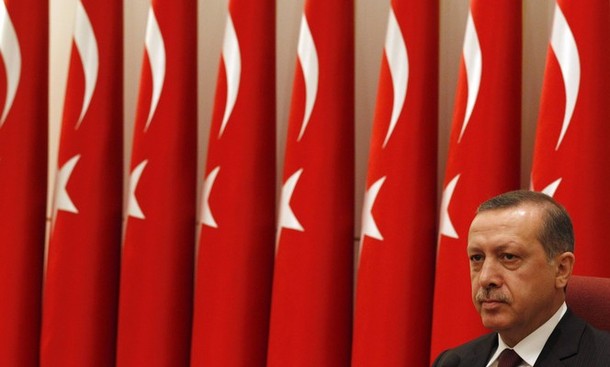
From Alexander Corbeil, Foreign Policy Association: Over the past 19 months, the Justice and Development Party has attempted to utilize international forums, including NATO and the UN, to address the situation in Syria. In April, after Syrian mortars fell in southern Turkey, [Turkey’s Prime Minister Recep Tayyip] Erdogan threatened to approach NATO and invoke the Alliance’s collective defense clause. Article 5, which states “an attack on any member shall be considered to be an attack on all,” was not invoked, and NATO member states quickly moved to stop this escalation in rhetoric, while merely condemning Syrian “attacks” on Turkish territory. The downing of a Turkish F-4 fighter jet by the Syrian army on June 22 also led to a similar statement by NATO’s Secretary General Anders Fogh Rasmussen, who ensured that the organization stood in solidarity with Turkey. Rather than invoking Article 5, a meeting was held under Article 4 of NATO’s founding treaty, which states that “any country may consult fellow member-state if it considers its territorial integrity, political independence, or security to be under threat.” It was the same article under which NATO met at the ambassadorial level this week after the attack on Akcakale, leading to another strong condemnation of Syria, nothing else more.
Foreign Minister Ahmet Davutoglu’s speech at the UN Security Council on August 30 summed up Turkish frustration with the international stalemate on the Syrian crisis and the lack of support from Ankara’s allies. Davutoglu asked the Council, “How long are we going to sit and watch while an entire generation is being wiped out by random bombardment and deliberate mass targeting?” It seems as if the answer is 19 months or longer, probably until the rebels end the onslaught themselves. The Turkish Foreign Minister made it clear that the Syrian crisis, left unchecked, was growing immensely to the point that Ankara has found itself increasingly challenged to deal with both security concerns and the flow of refugees. Overall, as Davutoglu stated, “there is an increasing sense in Turkey that, by making such a sacrifice and tackling an enormous issue all by itself, we are leading the international community to complacency and inaction.” This is a troubling depiction of the position in which Ankara finds itself now. . . .
Ankara must be made to feel that its allies are fully supporting it against flagrant violations of its sovereignty by the Syrian regime. While condemnation against the Assad regime has already come from the Security Council in light of the mortar attack on Akcakale, it is not enough. Turkey’s NATO allies must do more to covertly help the professional and secular elements of the Free Syrian Army in combination with the country’s security services. The quicker the Assad regime falls, the less chance of prolonged regional spillover and increased radicalization. To this extent, Western powers and individual donors must focus on the refugee situation, by providing more funds not only to UNHCR in Turkey, but also to the various aid agencies in Lebanon, Jordan and Iraq. Only when the AKP and the Turkish people feel that their NATO allies are fully supporting them with the Syrian crisis can a robust and mutually beneficial relationship begin to develop again.
Alexander Corbeil is a Senior Middle East Analyst with The Atlantic Council of Canada. (photo: Reuters)
Image: reuters%2012%206%2010%20Ottoman%20Commonwealth.jpg
